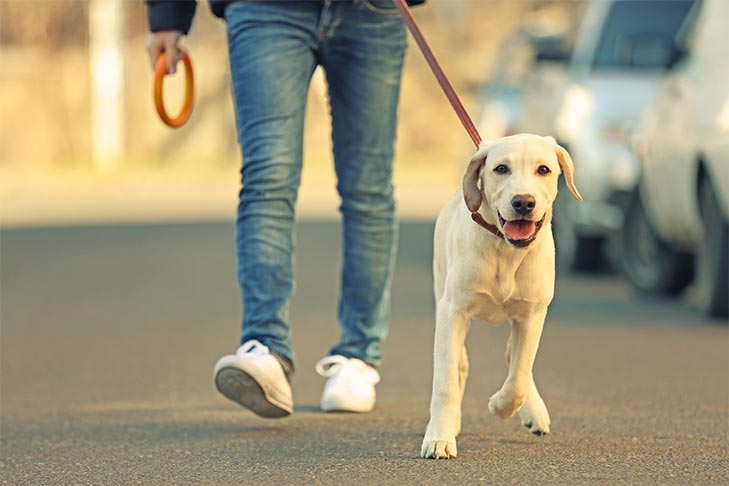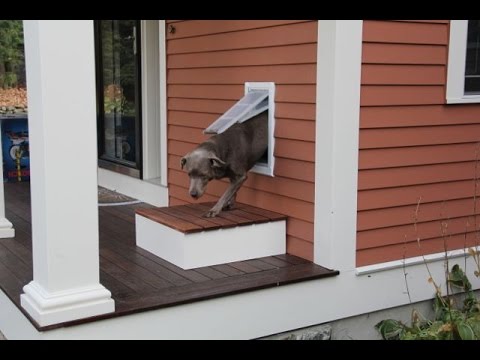It isn’t certain yet if dogs suffer from depression just like we humans, but they do seem to exhibit a likely character when faced with certain experiences. As we all know, even the happiest person can sometimes have a lot weighing on them that could adversely affect and result in depression, the same thing goes for our friendly pet. You notice an unusual loss of interest, a surprising change in the way they eat or sleep, a drastically reduced energy level, and then it hit you; is my dog sick or depressed?
Connect with a verified veterinarian in minutes. Licensed vets are available 24/7 to answer your questions. No need to worry about your furry family member.
There are many different reasons a dog might feel depressed. Despite the fact that the way they act it out might differ from dog to dog, there are still a few characters we think are common to most depressed dogs. A stressful environment, death of owner or an animal friend, or as a result of reduced attention given to them. Sometimes, it could also be as a result of a move to a totally new environment, additional person or pet to the household, a traumatic injury, or maybe a sudden change of routine in the dogs’ calendar. Let’s not also rule out the fact that our friendly pet might actually be sick and requires a medical attention from an experienced veterinarian. This is always the advised first step to take, going to see your vet for a professional opinion and proper treatment.
In this article, we have carefully put together different factors that would help you ascertain if your dog is depressed. But like we mentioned earlier, the noticed change in behavior might be as a result of something serious, so always make sure you visit your veterinarian first when you start noticing changes.
What signs to lookout for?
Are you worried your friendly pet may be suffering from depression? These signs will educate you on what to check for:
1. Their Eating Habit Changes
Believe it or not, dogs enjoy eating a lot so a change in their eating habit is usually one of the first signs they give away. When you notice a sudden change in the eating habits of your dog, this might be a sign of depression. A depressed dog will just play with their food, stop eating entirely (which might lead to excessive weight loss), or in some cases eat a lot as a way of finding comfort, this always results to an abnormal weight gain.
2. They Hide and Become Withdrawn
Dogs are loving and happy creatures. If your dog is the kind that just can’t stay away from the door because she readily waiting to pounce on you and lick your face in excitement to welcome you home and suddenly you get back home from work only to wonder if your dog is playing a game of hide and seek, then obviously there is a problem that needs to be tackled head-on. Dogs don’t start hiding or want to be left alone if there is nothing wrong with them!
They stop playing with family members or other animal friends in the environment instead, they walk into a quiet and lonely place to be alone with themselves to avoid any companion. If she’s exhibiting this kind of character, it could be as a result of depression or injury
3. Sleeping Behavior Changes
A change in your dog’s sleeping habit can also mean depression. It can be quite difficult to ascertain because dogs tend to sleep for long periods, but an excessive sleeping habit could be a sign of something serious. If there hasn’t been a change in your dog’s calendar and she doesn’t seem to want to get out of bed even when you come home from work or rarely gives you any attention, definitely something is wrong and should be checked immediately. More dog time is advised. Do something fun with her, take her on long walks to the park, and play fun games that would usually excite her. While some dogs sleep more than usual when depressed, others might become restless and find it difficult to sleep.
4. Loses Interest In Fun Things
A sudden loss of interest in fun stuff that are sure to make your dog excited is a sign she might be depressed. You might notice she doesn’t want to play around the house anymore like before or feels reluctant to go for walks. Shying away from things that would normally interest them could mean depression.
5. Excessive Paw Licking
It’s normal for dogs to lick their paws, but it becomes a cause for concern when it’s excessive. Dogs soothe their pains by licking it away, so if you notice your dog licking her paw for much longer period than usual, endeavor to check for any injuries. However, if there are no injuries on their paws and the incessant licking and chewing continues, this could be a sign of depression. Take her to see your Vet immediately.
There are other signs of depression in dogs like refusing to drink water, aggression, excessive shedding, etc. but these are the most common. These signs could also be as a result of medical concerns, so if you have noticed any of the signs above in your dog and are not sure of the reason behind your dog’s sudden change in behavior, the only sure way to know for sure is to take her to see a professional veterinarian.
How can you help your depressed dog?
First things first. Take your dog to a veterinary doctor the moment she starts experiences the signs stated above to rule out any possibility of a health sickness before commencing treatment for depression. Some of the ways to get your dog out of depression include:
1. More Dog Time
Seeing how your dog has suddenly lost interest in almost everything, it would help to shower her with more dog time. Does a game of fetch excite your dog? Then it might be time for a little fun with your friendly pet. Take her for walks, engage her with special activities she loves, and you’ll be surprised how happy she becomes just from the little extra attention from you.
If you happen to be a person who spends most of your day away from home working, see if you may be able to take your dog to work with you. The depression may be triggered by not having a regular connection with you. If you are able to take your dog to work once a week or even daily, you should be able to see a difference in how your pet interacts with you and those people who share the better part of a day with you.
2. Consider Getting a Companion
Dogs can become depressed by the death of an animal friend. If this is the case and your dog is grieving over a loss, it might be reasonable to get her a companion (only if it’s convenient) especially since she’s always by herself when you’re off to work. Visits to the park, a dog walker, interaction with other dogs around the home are also options to get your dog happy again.
Often a dog that gets to be around other dogs doesn’t feel so much out of place. If adding a new four-legged friend to your household is a doable solution, you may be surprised with the end results. When you add another dog to your home, you provide both with a companion that completely understands their needs and wants.
Plus, with an extra pet around, if you have a large family, the dogs will get shared and showered with affection
3. Regular Exercise
It is possible that lack of regular exercise could be the cause of depression in your dog. Dogs can get depressed when they don’t get enough physical activities. Allow your friendly pet exercise herself by taking her for a walk or playing Frisbee. This is sure to cheer and make your dog lively. Also, knowing the kind of breed should be considered here. Check out our article on how to keep your dog busy while at work for additional tips!
Just like with humans, if we get depressed, one of the easiest ways to remedy the situation is to move around. Just by going for a walk in the outdoors will perk the average person up. That is because the movement created by walking causes the heart to work harder to pump blood throughout the body. Blood moves oxygen and those ‘good vibe’ endorphins. It is endorphins that make you feel good. A walk, a short jog or a bike ride with your pet will make both of you feel better and give you the strength to fight off the blahs.
4. Time and Patience
When a dog loses its owner or a companion, it will only take time to heal and this entirely has to do with patience. Try to be there when your dog needs you and do things that’ll make her happy. It might take a while (from a couple of days to a few months), plus a little bit of your time and care to bounce back, but in the end, it’s totally worth it.
Dogs need time to mourn and heal, just as humans do when we lose a loved one. The human/dog bond is that strong and that vital to a canine family member. Sometimes all it takes is some time but with the support of loved ones around, that healing time can pass quicker.
5. Social Interaction
Allow your dog to watch and interact with other playful dogs around. You never know how positive and less depressed she might start to feel after a social outing with fellow dog friends. This is another point related to bringing another dog into your family. If adding a new pet is not possible, visiting the neighborhood dog park or getting together with a neighbor who has a dog may be all the extra interaction your dog will need to feel better.
6. Special Treats
Giving your dog some kind of treat or reward when they show signs of being happy is highly encouraged. She might refuse to eat her normal food, but doesn’t waste a moment to accept treats from you. Well, that shouldn’t be a problem, in fact, it’s a good thing she’s starting to eat again, so give her more treats. Just be careful not to end up replacing regular meals with treats as you may end up with a slightly different problem on your hands.
However, when you notice a negative behavior, it is no longer advisable to give her treats as this can encourage the depression.
7. Medication
This should really be considered as the last resort if nothing else seems to work. There are drugs like Prozac and Zoloft that can be prescribed by a veterinarian for depressed dogs. Since they won’t be on antidepressants for a very long period, in about 6 to 12 months of using the drugs they should get better. The best solution remains to detect the signs early enough and working with them to correct the behavior naturally rather than the use of drugs.
Our four-legged friends are far more than mere companions. They are family members. When things happen in the environment they live in, it has an impact. Even if you don’t notice it right away. This is why it is important to get to know your dog very well so that you will be able to detect if something is wrong. It also means that you should always maintain a regularly scheduled check up routine for your dog at your professional veterinarian’s office. They have the experience and knowledge to help you to work through the problems that may be causing your dog to become depressed.
Now you know the signs to look out for when you feel your friendly pet is down or depressed. Lavish her with a lot of care and kindness, she deserves it. Also, a continuous attempt to help her get through will only make it better and faster before she starts pacing and jumping all over just like before. Always remember to seek a professional help from a veterinarian. If you have any questions or comment, we’ll like to hear it.
Connect with a verified veterinarian in minutes. Licensed vets are available 24/7 to answer your questions. No need to worry about your furry family member.

Kim
Kim is a talented author, who loves animals especially dogs. She engaged in writing books and articles relating to animals a decade ago. Kim resides in Chicago with her husband and son. The family is the proud owner of a dog and a parrot (Jack and Lily). Kim wanted more than these two pets, but her husband put his foot down... She often visits elementary schools to talk to the kids about what she learned about pets and how they could learn from them.
Review symptoms, medications & behavior to keep your pets healthy with a Vet Online in just minutes.
Ask a Vet Live Now



